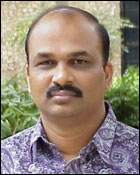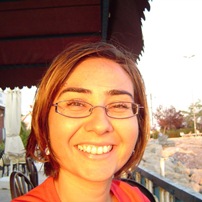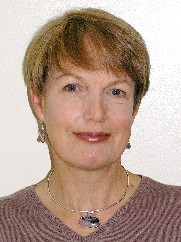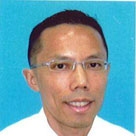About the Award

Rae and Dan Landis (ca. 1983)
Rae and Dr. Dan Landis Outstanding Dissertation Award
Description
The mission of the International Academy for Intercultural Research (IAIR) is to promote and facilitate intercultural research in the areas of psychology, communications, education, management, and other specializations in social sciences that are related to cross cultural studies. The Academy encourages high quality intercultural research at the doctoral level, which is conventionally the starting point in academia. The Rae and Dr. Dan Landis Outstanding Dissertation Award is intended to recognize and honor outstanding scholarly achievement by aspiring intercultural researchers. Support for the award is provided by the Academy.
Prize
US $1,000.00, one-year membership in IAIR and free registration at the IAIR Biennial Conference when the prize is conferred. The winner will be asked to give a presentation of his or her research at the Conference in Brisbane, June 28 – July 1, 2025..
Apply for the Award
Criteria for Submission and Deadlines
The main thrust of your doctoral thesis (dissertation) must be centered around intercultural studies, that is to research the dynamics and/or promote understanding and appreciation between individuals and groups from diverse communities and heritage. It should be unique yet rigorous in its theory and method. Doctoral theses eligible for an award must have been completed (and accepted by the awarding university) during the two calendar years ending on December 31 of the year prior to the conference year. The winner of this award will be invited to present his or her PhD findings at the next IAIR Conference in 2025.
Submissions must be received by the chair of the Review Committee (see email address below) by February 1, 2025.
Rae & Dan Landis Outstanding Dissertation Award year: 2025
Dissertation Completed: January 1, 2023 - December 31, 2024
Submission: February 1, 2025
What to submit
Please submit a 1500-word abstract (double-spaced, Times New Roman Font Size 12, 1-inch margins) of the doctoral thesis in English to the emails below by February 1, 2025. The abstract must contain no information that identifies the applicant, thesis supervisor, or institution. The word-limit does not include references. The abstract must contain complete details of the theory, method, results, and implications for the field. Submit the abstract electronically as an email attachment to the address given below using a common word processing file format such as Word, Wordperfect, or Rich Text Format. Do not send it in a .pdf file. In a separate file, list your contact information (title of submission, name, affiliation, physical address, phone number, fax number, email address, webpage if you have one).
A letter from the thesis advisor certifying the university acceptance date of the thesis should be sent by your advisor, also as an email attachment, directly to the Chair of the review committee.
Following a preliminary evaluation, finalists will be asked to submit a 35-page summary description of the full doctoral thesis, in the language in which it was written to the review committee. Should the original language be other than English, the selection committee will be augmented to include scholars who are native speakers of that language and who feel competent to evaluate the work. The winner of the award will be invited to prepare and submit an article derived in full or in part from his/her dissertation research to be considered for publication in the International Journal of Intercultural Relations.
Where to submit
All materials should be submitted electronically to:
Dr. Chan-Hoong Leong (
The Conflict of Interest Policy of this committee can be found in the next tab.
Conflict of Interest Statement
The Rae and Dan Landis Outstanding Dissertation Award Committee
Statement on Conflict of Interest
The Rae and Dan Landis Outstanding Dissertation Award aims to recognise research excellence among PhD scholars who have recently graduated, and whose research are in the field of intercultural studies, or the types of social context and group dynamics that promote understanding and between individuals and groups from diverse heritage. This circle of research is small compared to other disciplines, and academic scholars who study this field almost always have co-published or had some interactions with other scholars on a similar topic.
It is therefore crucial that the evaluation process for the Dissertation Award be conducted in a professional manner that is objective, fair, and transparent. The Award is given out once every 2 years. Approximately 8-9 months prior to the IAIR Biennial conference, a Call for Award Application is put out and applicants may submit their PhD abstracts to the Academy for considerations (refer to “Rae and Dan Landis Outstanding Dissertation Award Application” on the protocols).
Dissertation Award Committee members are required to evaluate all submissions in a manner that is professional and honourable.
Prior to the evaluation, all committee members must declare a Conflict of Interests (COI), if (i) they know of any applicant personally, and (ii) whether they had previously or are currently working jointly on any research projects and/or publications. The statement will not disqualify a committee member affected by (i) and/or (ii). Instead, the objective of this declaration is to hold individual committee member accountable for their judgement, such that it is unbiased and visible to all.
The disclosure on COI must be made to the Chair after the abstracts are circulated to the committee members, but before the evaluation commences. The Chair may require an Award committee member to recuse from evaluating an applicant’s submission if there is a compelling reason for doing so, for instance, the applicant’s dissertation is supervised by a committee member. In this instance, an independent, external reviewer will be appointed to assist in the evaluation of the abstract affected by the COI.
The Award committee member who has a COI shall evaluate all submissions except the applicant’s whose abstract is affected by a COI. This Award committee member shall provide to the Chair, details of his or her assessments and benchmarks used in evaluating all abstracts, and these documentations shall enable the appointed external reviewer to make an informed judgment on where the COI-affected abstract stands vis-à-vis the rest of the submissions.
In addition, given the Executive Council is required by the by-laws to approve the designee(s) of this award, there exists the potential for a conflict of interest. In the event that a member of the Executive Council has a conflict of interest, then they must declare that conflict of interest and abstain from the approval vote by the Executive Council. This condition would also apply to the Award committee members if they happen to be members of the Executive Council.
The process and declaration on Conflict of Interests is a transparent one. It will not disadvantage any Award committee member who may have deserving graduate students eligible for the award but at the same time, it will hold the Award Committee and the Chair accountable for their decisions, and to uphold integrity, impartiality and transparency.
Chan-Hoong Leong, PhD
Chair (2025), Rae and Dan Landis Dissertation Award Committee
Current Awardee

Wybren Nooitgedagt
Utrecht University
Dissertation titled: Whose land is it?: Perceived ownership and territorial compensation in settler societies
Wybren Nooitgedagt is a postdoctoral researcher at Erasmus University in Rotterdam. After completing his bachelor’s degree in Cultural Anthropology and Development Sociology (Leiden University), he obtained his research master’s degree in Migration Ethnic Relations and Multiculturalism (Utrecht University) cum laude. In September 2017, he started working as a Ph.D. candidate at the European Research Centre on Migration and Ethnic Relations (Utrecht University), and the Interuniversity Center for Social Science Theory and Methodology under the supervision of Dr. Borja Martinović and Prof. dr. Maykel Verkuyten. In 2019 he was a visiting scholar for two months at the Society and Health Research Center of the Universidad Mayor in Chile under the supervision of Dr. Ana Figueiredo. His dissertation (Whose land is it?) is about perceived ownership and support for territorial compensation in settler societies. He examined three aspects of perceived territorial ownership: who is seen as the owner, why is that group seen as the owner, and what are the implications of perceived ownership? He currently works as a postdoctoral researcher with Dr. Jaco Dagevos, studying socioeconomic and sociocultural integration processes among Syrian refugees in the Netherlands.
Previous Awardees
|
|
Dr. Miriam Schwarzenthal, PhD, Dissertation titled "Intercultural Competence and Critical Consciousness Among Adolescents Attending Culturally Diverse Schools in Germany" |
 |
Dr. Judith Kende University of Leuven, Belgium “Who defines inequality for whom? The interplay of intergroup contact and inequality" |
.jpg) |
Dr. Jonas Kunst "Clash of civilizations? How acculturation and common identity processes shape the relationship between majority and Muslim minority groups in the West" |
 |
Dr. Anouk Smeeks European Research Centre on Migration and Ethnic Relations (ERCOMER) at Utrecht University "The presence of the past: Historical rooting of national identity and current group dynamics" |
 |
Dr. Linda Tip "Causes and consequences of public and private acculturation preferences: Views of minority and majority group members in three countries" |
 |
Dr. Jesse Olsen "The Effect of Organizational Diversity Management Approach on Potential Applicants’ Perceptions of Organizations" |
 |
Dr. Vijayan Munusamy "Decoding the Meaning of Multiculturalism: An International Study of Malaysia, Singapore and Hawai‘i" |
 |
Dr. S. Arzu Wasti "Organizational Commitment and Collectivism: The Case of Turkey" |
 |
Dr. Fran Brew "Intercultural Conflict in the Workplace: A study with Western expatriates and East-Asian host-nationals." |
 |
Dr. Judy Lin "Developmental, Social and Cultural Influences on Identity Conflict in Overseas Chinese" |
 |
Dr. Chan-Hoong Leong "A multi-level research framework for the analysis of attitudes toward immigrants" |
 |
Dr. Karen Moustafa-Leonard "A cross-cultural investigation of temporal orientation in work organizations: A differentiation matching approach" |
 |
Dr. Brent MacNab University of Hawaii at Manoa, USA |
 |
Dr. Patricia Cassiday "Leadership in International Settings: Exploring the values, beliefs and assumptions of expatriates"
|

